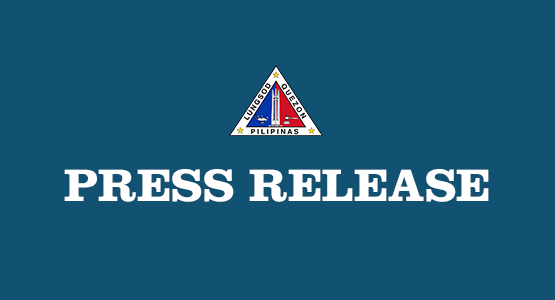
As the world marks Environment Day, the Quezon City government reiterates its full commitment to attaining a sustainable urban future by initiating stronger programs and legislating more responsive ordinances to combat the threat of global climate change.
QC has created various strategies, such as the establishment of a 93-kilometer protected bike lane network that traverses major and secondary roads to promote active transport and urban mobility, which is also significant in the city’s decarbonization strategy to reduce air pollution.
“It is the city government’s responsibility to protect its residents from the threats brought by a warming planet. Through our collective effort with stakeholders and residents, we hope to become the lead city in advancing an inclusive, ambitious, evidence-based, innovative and transformative climate action in the Philippines,” QC Vice Mayor Gian Sotto said.
The city’s programs and initiatives are all guided by the QC Enhanced Local Climate Change Action Plan (Enhanced LCCAP) 2021-2050 that is consistent with the objectives of the Paris Agreement and the United Nations’ Sustainable Development Goals in building a resilient, carbon neutral, advanced green economic development, and a liveable and quality community.
To reduce plastic wastes, the city has also initiated projects with partner stakeholders such as the Trash to Cashback program that trades recyclables into “environmental points” that can be exchanged for basic commodities and be used in paying utility bills, and the Vote to Tote program that turns collected campaign tarpaulins and posters into reusable bags.
Aside from the protected bike lanes, the city has also been renovating public parks and open spaces, and has established protected walkways such as the 5.39 kilometer- Green Open Reclaimed Access (GORA Lane) pedestrian-oriented promenade along Dona Hemady Ave., Scout Tobias, and Mother Ignacia to promote walkability and active recreational activities for QCitizens.
As the city started adopting sustainable, clean, and renewable energy, QC will soon solarize at least 50 public schools and the three city-owned hospitals: the Quezon City General Hospital and Medical Center (QCGHMC) in Bahay Toro, Rosario Maclang Bautista General Hospital (RMBGH) in Batasan Hills, and Novaliches District Hospital (NDH) in San Bartolome.
Aside from the programs, the city has also implemented landmark ordinances for the environment, such as City Ordinance 2868-2019 or the Plastic Bag Ban Ordinance; Ordinance 2876-2019 that prohibits distribution of single-use plastics for dining-in customers in restaurants and hotels; Ordinance 1917-2009 or the Green Building Ordinance; and the creation of the Climate Change and Environmental Sustainability Department (CCESD) through Ordinance 3009-2020 that is dedicated in initiating climate change mitigation and adaptation, and environmental sustainability.
The QC Council has also passed Ordinance 3107-2021 or the Green Public Procurement Ordinance that mandates the inclusion of environmental criteria in public procurement. This will encourage city suppliers and consumers to support the market for environmentally preferable goods and services.
All of the projects and measures are part of the realization of Mayor Joy Belmonte’s 14-point agenda, specifically agenda item number 10, which is to “Build a livable, green and sustainable city.”
“The executive department and legislative department are working closely together to make sure that all of the programs for the environment will be fulfilled and accomplished. Ginagawa natin ito hindi lang para sa atin, kundi para rin sa kapakanan ng mga susunod na henerasyon,” Vice Mayor Sotto added.
###







